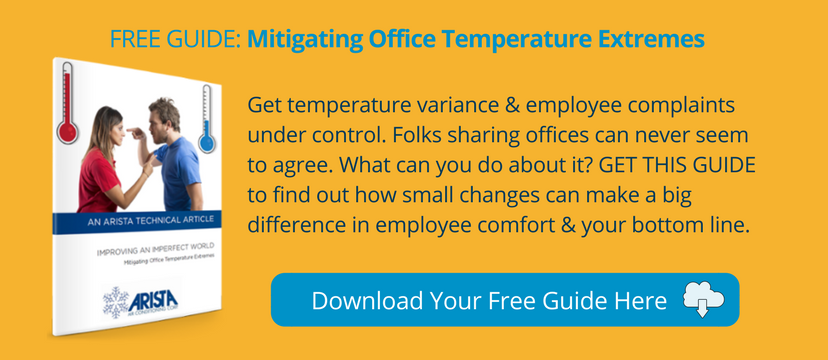We recently posted a series of articles on the impact of an HVAC System to your bottom line, including the importance of a comfortable temperature for customer retention. Not long ago, in an attempt to maintain the kind of comfort that encourages folks to stay in stores on frigid winter days, Target authorized its HVAC vendor to monitor temperature, troubleshoot system issues and chances are, if you own a computer, or a television, or a radio, or a newspaper you know the rest of the story.Read More
Commercial HVAC
4 Reasons Why the Average Office Temperature Could Cost You Your Job.
How regularly do you consider your physical work environment? The way it affects your sense of personal satisfaction? Work ethic? Productivity?
Let’s try it. Stop whatever you’re doing (except reading this post, of course). What is the very first thing you notice? Is it the noise level? The brightness of the fluorescents above your work station?
Well, according to the IFMA, it’s probably the temperature.Read More
8 Steps to a Successful HVAC System Redesign: An Infographic
According to the International Facility Management Association, temperature is the #1 number one complaint expressed by office workers. So how can you make sure your building temperature is comfortable and worker friendly?
Typically, simple updates to your HVAC system can help solve the problem, but sometimes it takes a redesign to make a world of difference.
Nearly 40% of HVAC systems are between 16-30 years old. Knowing this, it’s easy to see how, if not properly maintained or updated, systems can pose their own sets of problems for workers beyond just heating and cooling variations. A redesign may be much needed.We’ve created this simple infographic to help you quickly get on your way to a stress-free redesign.
Checkout our Infographic: 8 Steps to A Successful HVAC System Redesign
Small changes to your HVAC system are often the key to improving temperature variances. So before considering a redesign, check with your service provider for minor adjustments that can pay big dividends, now and into the future.
Want more tips? Download Improving an Imperfect World: Mitigating Office Temperature Extremes. Don’t waste time and money. Find out how easy it can be take control of your building’s climate!
Arista & Gramercy Tavern: An HVAC Love Story
If you’ve been reading our blog, you’ve probably noticed we try not to talk too much about ourselves. Generally, we prefer to be a resource rather than a bullhorn. But in honor of Valentine’s Day we thought we’d get a little personal, heat things up a bit.
Ok, ok. We know what you’re thinking: this business isn’t particularly sexy, certainly not romantic. You’re right. Hugh Grant has never made a movie about HVAC. E.L. James didn’t write 50 Degrees of Grey. and in fact, we know we’ve done the job right when no one notices us at all.Read More
Feeling the Heat: Keeping Your HVAC System Up to Par for Worker Productivity
As a facilities manager or building owner, you’ve probably heard your share of complaints regarding office temperature. Not only does a less-than-ideal temperature aggravate employees, but it’s also directly linked to lower productivity — contributing to a lack of focus that can interrupt workflow.Read More
HVAC System Maintenance: 10 Steps to Maintaining the Perfect Temperature
Trying to manage the issue of temperature variance? That’s not surprising — according to the International Facility Management Association, complaints about temperature control and extremes are the #1 grievance expressed by office workers. Thankfully, there may be a simple solution for building managers and facility owners.Read More

